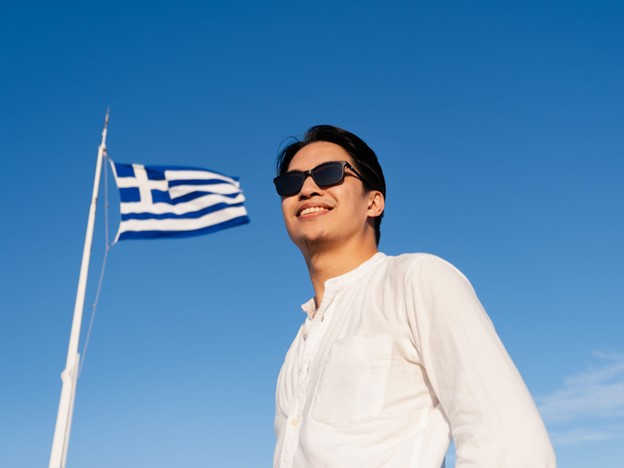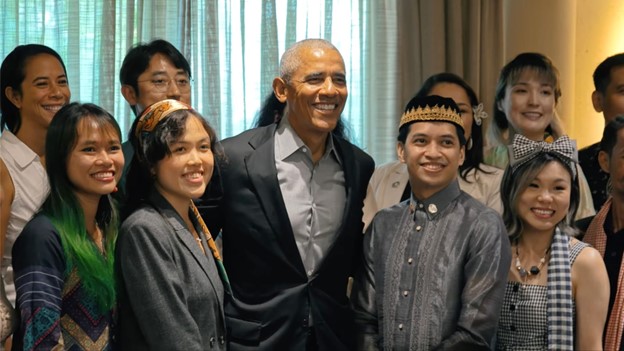Abu Al-Rasheed Tanggol
MPP 2019
Director of the Institute for Policy Innovation and Leadership, Mindanao State University-Iligan Institute of Technology
Higher Education
Better known as “Boggs,” Abu Al-Rasheed Tanggol (MPP 2019) is an assistant professor at the Mindanao State University-Iligan Institute of Technology (MSU-IIT), where he teaches classes on public administration, political science, public policy, and peace and conflict resolution.
“My time at the LKY School helped shape the kind of professor that I am today,” he says.
“My experience with Philippine education was more about hardships, the idea being that if you survive, you’ll emerge as a much better version of yourself. In Singapore, I found it more nurturing, and there were lots of opportunities to be mentored by faculty members. This changed the way that I view education, and how I teach. Instead of being feared and giving my students a hard time, I want to be seen as a mentor, and someone who helps my students learn outside of the classroom as well.”
“My experience with Philippine education was more about hardships, the idea being that if you survive, you’ll emerge as a much better version of yourself. In Singapore, I found it more nurturing, and there were lots of opportunities to be mentored by faculty members. This changed the way that I view education, and how I teach. Instead of being feared and giving my students a hard time, I want to be seen as a mentor, and someone who helps my students learn outside of the classroom as well.”
Apart from teaching, Boggs also runs the Institute for Policy Innovation and Leadership, which is MSU-IIT’s hub of public policy research and advocacy, engagement, and education on key thematic areas towards improving public policy-making in the country. This year, he’s had some new perspectives about learning to thrive as a leader, through his experience with the Obama Foundation’s Leaders Asia-Pacific programme. He shares his thoughts below.
 Boggs in Athens this year, for the closing of the Obama Foundation's Leaders Asia-Pacific programme.How did you hear about the Obama Leaders Asia-Pacific programme?
Boggs in Athens this year, for the closing of the Obama Foundation's Leaders Asia-Pacific programme.How did you hear about the Obama Leaders Asia-Pacific programme?One of my MPP mates, Francesco Fazzi, has a knack for spotting opportunities for his friends! When he sent me the link to the programme, I thought it was a good fit for what I was looking for at the time.
I wanted an opportunity to take my career—particularly my leadership—to the next level. As I was also raising my young daughter, I didn't feel I had enough time for a residential programme. Seeing how this was set up as a non-residential programme with virtual workshops and engagement sessions, I thought it was perfect for me. And of course, there is the legacy of former President Barack Obama and his brand, his leadership journey, and his style, which resonated a lot with me.
Sounds like it was an easy decision to apply?There was some hesitancy, but it was mainly due to self doubt. Although I saw the programme as a good fit for me, I wasn't certain if the Obama Foundation would feel the same way.
Clearly they did! What was the application process like?The initial application is straightforward, as everything is done online. There was a form to fill out, which included short essay questions, and I had to submit documents as well. For shortlisted applicants, a panel interview followed. I can't recall how long the entire process took, but I'd say it was a fairly quick turnaround compared to similar programmes that I'd applied to in the past. After the panel interview, I was informed that I would be one of the Obama leaders for the 2023 programme.
How did you present yourself during the interview, in order to stand out?The programme is about bringing in emerging leaders who are making an impact in their own communities. The questions allowed me to articulate the work that I’ve done in the Philippines, and also delved into the values that I want to uphold as a community leader.
Something that I mentioned during the interview was the value of democracy, and how this relates to my work. I work in the area of peace and conflict resolution, so a lot of the issues I deal with have to do with social cohesion, as I work with (and for) communities that come from very diverse backgrounds. With that, it's important for me to advocate for the kind of leadership that allows various stakeholders, especially those who are in situations where they can be marginalised, to be at the table. I want marginalised groups to be included not just in terms of consultations, but more importantly, in setting the agenda. So inclusion and participation have always been a hallmark of my leadership.
What was your reaction when you heard you were selected to be an Obama leader?Based on the interview, I was fairly confident that I’d presented myself as a fitting candidate for the programme. But at the same time, you never know—we didn't have any information as to the number of applicants, or who they were. So when I got the news that I was one of the successful applicants, I was overjoyed and I immediately told my wife about it!
The news also came at an opportune time, as I was going through a challenging phase in my career. I’d been with my organisation for close to nine years, and although I felt I was performing well in my role, I was also experiencing stagnation and needed a push. I thought that putting myself out there in a global programme would provide a healthy discomfort to allow me to grow. That’s also what they taught us during the programme, that it’s good to grapple with discomfort in our lives.
Give an example of when discomfort might be healthy, and when it’s not?In the Obama Leaders programme, one of the priorities was creating a “brave space” for everyone. The more common term is “safe space,” but if you look at the literature, these so-called safe spaces haven't been safe for everyone, because the term itself implies that everyone should feel comfortable. In contexts involving power asymmetry, underlying tension between sectors, or marginalised groups, promoting comfort can reinforce asymmetries and the injustices that exist. Healthy discomfort means you don’t always have to go with the majority, because one voice can change the room. So it’s important for us to embrace that discomfort.
For the most part, people are able to discuss and debate issues without getting personal. But when it becomes personal, or when people in a group aren't able to overcome their differences in positions, and can't go deeper to discuss commonalities in terms of their interests and needs, that's when the discomfort can become unhealthy.
What else have you learned from the programme?There were a lot of workshops that I felt were surprising for me personally. One was a workshop on narratives—our public and personal narratives, and the power of storytelling. That led to a big “aha!” moment for me, because in my field, we deal with community narratives and try to surface those stories. But I've never really thought about my own narrative and how I got into this line of work. The workshop allowed us to delve deeper into our own lives and question ourselves: Why are we in this line of work? Why are we pushing for a better world? Why are we trying to push the boulder up the hill?
As part of the narratives workshop, we also reflected on how our personal narratives are anchored on our past experiences. For example, it could be an experience of injustice that compelled you to work in human rights. This gave us a chance to introspect in a deeper way than we would ordinarily have, to discover why we do the work that we do.
Another component of the programme dealt with mindfulness and meditation, and why it’s important for everyone, not just leaders. I wasn’t looking forward to those sessions at first, because I didn’t think it was important. But as the sessions progressed, I realised that my physical and mental health were improving, and so was my relationship with my wife and my workmates.
Here in the Philippines, I grew up in a context where, especially for males, we don’t discuss mental health. By convention, men have to be strong, not show emotion, and not let emotions hold us back. It was a breath of fresh air to meet people who were emphasising the importance of mental health, and these were the sessions that had the biggest impact on me.
 Boggs (front row, second from right), with former President Obama and the Asia Pacific cohort of Obama leaders for 2023.You also met Barack Obama.
Boggs (front row, second from right), with former President Obama and the Asia Pacific cohort of Obama leaders for 2023.You also met Barack Obama.We had a virtual session with him, and we met him face-to-face in Athens for a convening session to mark the end of the programme. I didn't think the former President Obama could be more charismatic than what I’ve seen on screen, but he’s even better in person! I was struck by how funny he was, always delivering punchlines, and also how laidback he was around us, despite formalities such as his strict security.
When he met us, the first thing he did was to go around and shake our hands. There were over 30 of us in the Asia Pacific cohort of leaders, and he took the time to ask us where we were from, and make us feel seen. Our session with him wasn’t one where we were just listening to a former president—he had a genuine interest in wanting to know about the work that we did. To me, this speaks volumes about the kind of leader that he is, and his attention to detail.
How will you approach life differently, going forward?In the course of the programme, I’ve asked myself questions like: What are the values that I consider non-negotiable? What are my principles as a leader? What are those that I would not be willing to break?
Being certain about my values will allow me to better navigate situations of tension and polarity—both in my career and my personal life. I also now have 30+ lifelong friends from different countries whom I can turn to for expertise, as well as the entire Obama leaders alumni network.
What’s funny is that during the programme, we realised many of us had felt some sense of imposter syndrome. Because if you had read the profiles of the other leaders in the programme, you’d think, “Wow, they’re doing a lot of good work. How do I stack up?”
But the way that the programme is designed, we never felt the need to compare ourselves with others. Instead, we focused on appreciating the value of our own work. And if someone was more experienced or accomplished, we learned to view that positively, to see the potential for learning from them rather than feeling intimidated. After this experience, my life is definitely on a better track.